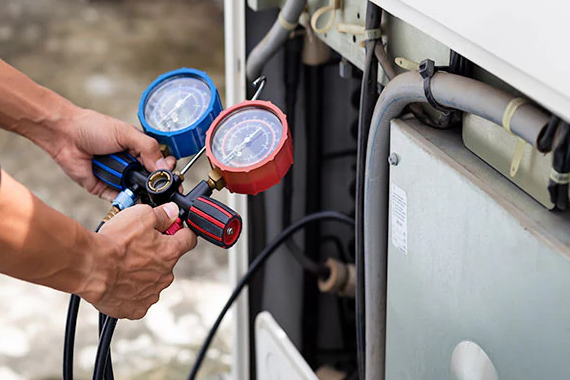We collaborate to achieve sustainable success
Get in touch with usMandatory Training, Certification, and Competence Requirements for F-Gas Handlers in the EU
The European Union's F-Gas Regulation (EU) 2024/573 marks a new era of stringent environmental controls, emphasizing not only the phase-out of fluorinated greenhouse gases (F-gases) but also the critical importance of proper handling and management throughout their lifecycle. A cornerstone of this new regulation is the EU-wide standardization of training and certification programs for all individuals and companies involved in handling F-gases. This replaces previous fragmented national systems, aiming for a consistent benchmark of competence and safety across the Union. For importers, ensuring their personnel, or those in their supply chain, meet these elevated standards is no longer optional but a mandatory requirement with significant implications for operational permits and financial penalties.
The urgency of this mandate stems from the inherent risks associated with F-gases, particularly their high Global Warming Potential (GWP), which necessitates meticulous handling to prevent emissions. Proper training and certification are essential for implementing enhanced leak prevention measures, ensuring efficient recovery, recycling, reclamation, and safer destruction of F-gases, and facilitating the safe transition to alternative refrigerants.
Key Requirements and Deadlines
The new regulation introduces firm deadlines and expanded obligations for training and certification:
- Standardized Training Programs: The European Commission is tasked with introducing these standardized training programs across the EU by March 12, 2026. This will establish a consistent curriculum and assessment framework to ensure a uniform level of competence.
- Updated Certifications: All existing certifications for F-gas handling personnel must be updated to comply with these new EU standards by March 11, 2027. This means that professionals currently holding national certifications will need to undergo additional training or re-certification to meet the new, higher EU-wide benchmarks.
- Mandatory Refresher Training: Companies are also obligated to ensure that any employee handling F-gases completes mandatory refresher training at least every seven years. This continuous professional development ensures that personnel remain updated on the latest technologies, best practices, and regulatory changes.
- Expanded Scope: This mandate may extend to personnel handling all types of refrigerants, including natural refrigerants, if their activities fall under the F-Gas framework. This broadens the scope of training requirements, emphasizing comprehensive competence in the evolving refrigerant landscape.
Implications for Importers
For importers of pre-charged equipment, the implications of these new training and certification requirements are significant:
- Operational Continuity: Failure to meet these new training mandates can lead to severe consequences, including the suspension of operational permits and significant financial penalties. This directly impacts an importer's ability to maintain operational continuity, as non-certified personnel may be prohibited from handling F-gases or F-gas containing equipment.
- Supply Chain Competence: While the direct training obligation lies with companies employing F-gas handlers, importers must ensure that their entire supply chain, including installers, servicers, and maintainers of their imported equipment, are adequately certified. This often requires due diligence on the part of the importer to verify the credentials of their partners.
- Safety and Environmental Performance: Properly trained personnel are essential for minimizing F-gas leaks during transport, installation, servicing, and disposal, directly contributing to the EU's climate goals. Investing in training demonstrates a commitment to environmental responsibility and best practices.
- Adaptation to New Technologies: As the market shifts to low-GWP alternatives, personnel must be trained in the safe and efficient handling of these new refrigerants. This ensures that the transition is smooth and that new technologies are deployed effectively.
In this rapidly evolving regulatory environment, proactive planning for training and certification updates is crucial. It is not merely a compliance check, but a strategic investment in the competence of the workforce, ensuring operational resilience and aligning with the EU's ambitious climate objectives.

